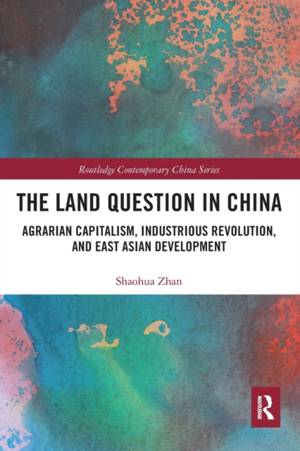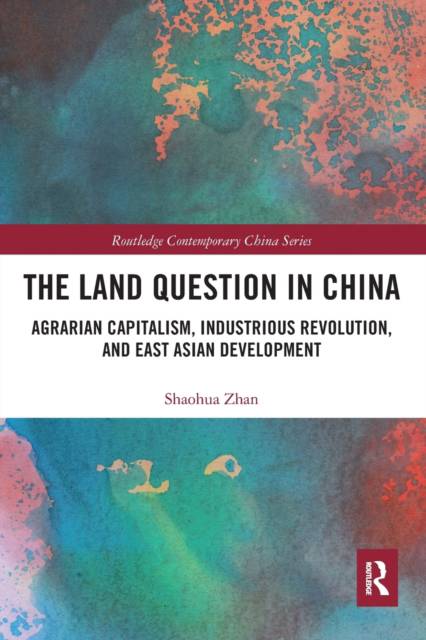
- Afhalen na 1 uur in een winkel met voorraad
- Gratis thuislevering in België vanaf € 30
- Ruim aanbod met 7 miljoen producten
- Afhalen na 1 uur in een winkel met voorraad
- Gratis thuislevering in België vanaf € 30
- Ruim aanbod met 7 miljoen producten
The Land Question in China
Agrarian Capitalism, Industrious Revolution, and East Asian Development
Shaohua ZhanOmschrijving
This book interrogates the inevitability and practicability of full-scale, land-intensive capitalist agriculture in China, whilst analyzing the labor-intensive industrious revolution as an alternative rural development path. It presents a critical account of the recent rise of agrarian capitalism as a force that would undermine hundreds of millions of people's livelihoods in the populous country.
The Land Question in China
traces the roots of the industrious revolution in China back to the eighteenth century, drawing comparisons between contemporary rural development and economic prosperity in the mid-Qing dynasty. In the context of neoliberal restructuring, it argues that vigorous rural development with broad access to land offers a solution to mitigate precarious urban employment and population pressure, while the transfer of land from villagers to large producers and urban investors will exacerbate these problems. Comparisons with South Africa and the East Asian economies of Japan, South Korea, and Taiwan further illustrate this and help to develop a new interpretation of the industrious revolution and its contemporary relevance.Providing a critical examination of the "new land reform" in China from a world historical perspective, this book will be useful to students and scholars of sociology, economics, and development, as well as Chinese Studies.
Specificaties
Betrokkenen
- Auteur(s):
- Uitgeverij:
Inhoud
- Aantal bladzijden:
- 178
- Taal:
- Engels
- Reeks:
Eigenschappen
- Productcode (EAN):
- 9780367662653
- Verschijningsdatum:
- 30/09/2020
- Uitvoering:
- Paperback
- Formaat:
- Trade paperback (VS)
- Afmetingen:
- 156 mm x 234 mm
- Gewicht:
- 276 g

Alleen bij Standaard Boekhandel
Beoordelingen
We publiceren alleen reviews die voldoen aan de voorwaarden voor reviews. Bekijk onze voorwaarden voor reviews.











